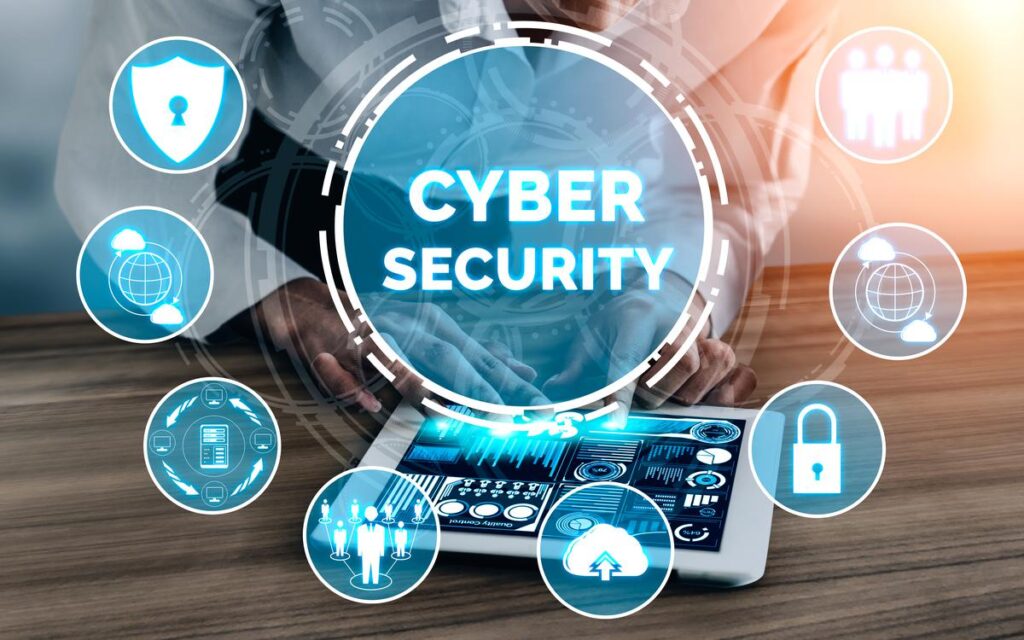Let’s be honest — not everyone has the time (or patience) to spend hours writing…

Promoting Cybersecurity Education for Digital Citizenship
In today’s interconnected world, where technology plays an increasingly integral role in our daily lives, ensuring cybersecurity education is essential for fostering responsible digital citizenship. With the proliferation of online platforms, the internet has become a primary medium for communication, commerce, and learning. However, along with its benefits come significant risks, including cyber threats such as hacking, identity theft, phishing, and malware attacks. To navigate this digital landscape safely and responsibly, individuals must be equipped with the knowledge and skills necessary to protect themselves and their communities online.

Importance of Cybersecurity Education
Cybersecurity education is critical for empowering individuals to safeguard their personal information, privacy, and digital assets effectively. By understanding common cyber threats and adopting best practices for online safety, individuals can mitigate the risks associated with using digital technologies. Moreover, promoting cybersecurity education contributes to the collective resilience of communities and organizations against cyber threats, ultimately fostering a more secure digital ecosystem.
Building Digital Citizenship
In addition to protecting oneself from cyber threats, cybersecurity education is integral to nurturing digital citizenship. Digital citizenship encompasses the responsible, ethical, and mindful use of technology and online resources. It involves understanding one’s rights and responsibilities in the digital world, respecting others’ privacy and intellectual property, and engaging in constructive online behavior.
Promoting cybersecurity education as part of digital citizenship initiatives encourages individuals to:
- Practice Safe Online Behavior: Educating individuals about cybersecurity best practices, such as creating strong passwords, recognizing phishing attempts, and regularly updating software, helps cultivate a culture of security-consciousness.
- Respect Privacy: Understanding the importance of privacy protection and respecting others’ privacy rights are fundamental aspects of digital citizenship. This includes being mindful of the information shared online and adhering to privacy settings on social media platforms and other online services.
- Combat Misinformation and Cyberbullying: Cybersecurity education can empower individuals to critically evaluate online content, identify misinformation, and combat cyberbullying. By promoting digital literacy skills, individuals can contribute to creating a safer and more respectful online environment.
- Promote Ethical Conduct: Encouraging ethical conduct in digital interactions involves respecting intellectual property rights, refraining from engaging in cybercrime, and advocating for digital rights and freedoms. Cybersecurity education can raise awareness about the legal and ethical implications of online activities.
- Participate in Cybersecurity Advocacy: Empowering individuals to advocate for cybersecurity awareness and policies at the community and organizational levels strengthens the collective defense against cyber threats. Active participation in cybersecurity advocacy initiatives can drive positive change and promote a culture of cybersecurity awareness.
Integrating Cybersecurity Education into Curricula and Community Programs
To effectively promote cybersecurity education for digital citizenship, collaboration among educators, policymakers, industry stakeholders, and community organizations is essential. Integrating cybersecurity awareness into school curricula, professional development programs, and community outreach initiatives can ensure broad access to education and foster a culture of cybersecurity consciousness from an early age.
Educational institutions can:
- Incorporate cybersecurity topics into existing curricula across disciplines, including computer science, information technology, and digital literacy courses.
- Provide training and resources for educators to integrate cybersecurity concepts into their teaching practices effectively.
- Offer extracurricular activities, such as cybersecurity clubs and competitions, to engage students and encourage hands-on learning experiences.
Community organizations and industry partners can:
- Sponsor cybersecurity awareness campaigns, workshops, and seminars to reach diverse audiences and raise awareness about cyber threats and best practices.
- Provide resources, such as online tutorials, educational materials, and cybersecurity tools, to support individuals in enhancing their cybersecurity knowledge and skills.
- Collaborate with schools, libraries, and local government agencies to promote cybersecurity education initiatives and advocate for policies that prioritize digital security.
MakeMyAssignments.uk is well-positioned to support college students in enhancing their cybersecurity education and promoting digital citizenship through a variety of tailored services and initiatives. Here’s how MakeMyAssignments.uk can help college students:
1. Customized Cybersecurity Assignments:
MakeMyAssignments.uk can provide college students with custom-written assignments focused on cybersecurity education and digital citizenship. These assignments can cover various topics, including cyber threats, online safety practices, ethical conduct in the digital realm, and the importance of digital literacy.
2. Educational Resources and Tutorials:
MakeMyAssignments.uk can develop educational resources and tutorials tailored to college students’ needs, offering comprehensive guidance on cybersecurity best practices. These resources may include informative articles, instructional videos, and interactive modules designed to enhance students’ understanding of cybersecurity concepts and promote responsible online behavior.
3. Workshops and Webinars:
MakeMyAssignments.uk can organize workshops and webinars in collaboration with cybersecurity experts and educators to deliver engaging and informative sessions on cybersecurity awareness and digital citizenship. These events can cover a range of topics, such as password security, social engineering, data privacy, and combatting cyberbullying, providing students with valuable insights and practical tips for staying safe online.
4. Cybersecurity Awareness Campaigns:
MakeMyAssignments.uk can launch cybersecurity awareness campaigns targeted at college students, raising awareness about the importance of cybersecurity education and promoting a culture of digital citizenship. These campaigns may involve social media outreach, campus events, and promotional materials to engage students and encourage active participation in cybersecurity initiatives.
5. Collaboration with Educational Institutions:
MakeMyAssignments.uk can collaborate with educational institutions to integrate cybersecurity education into college curricula and academic programs effectively. By partnering with colleges and universities, MakeMyAssignments.uk can contribute to the development of cybersecurity courses, workshops, and certification programs tailored to students’ needs and career aspirations.
6. Access to Expert Guidance:
MakeMyAssignments.uk can connect college students with cybersecurity experts and industry professionals who can provide personalized guidance and mentorship. By facilitating mentorship opportunities, MakeMyAssignments.uk enables students to gain valuable insights, career advice, and practical skills from seasoned professionals in the field of cybersecurity.
MakeMyAssignments.uk plays a crucial role in supporting college students in their journey towards enhanced cybersecurity education and digital citizenship. By offering customized assignments, educational resources, workshops, and access to expert guidance, MakeMyAssignments.uk empowers students to develop essential cybersecurity knowledge and skills, fostering a safer and more responsible online community for all.




This Post Has 0 Comments